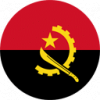Under article 4.2
paragraph (e) of the Staff Regulations, the filling of vacancies in technical cooperation projects does not fall under Annex I of the Staff Regulations and is made by direct selection by the Director-General.
In order to support the best informed process in the filling of the above-mentioned vacancy by direct selection, the ILO invites interested candidates to submit their application online by the above date.
The following are eligible to apply :
- ILO Internal candidates in accordance with paragraphs 31 and 32 of Annex I of the Staff Regulations.
- External candidates
- The recruitment process for National Officer positions is subject to specific local recruitment and eligibility criteria.
Technical cooperation appointments are not expected to lead to a career in the ILO and they do not carry any expectation of renewal or conversion to any other type of appointment in the Organization. Extensions of technical cooperation contracts are subject to various elements including the following : availability of funds, continuing need of the functions and satisfactory conduct and performance.
Conditions of employment for external candidates : In conformity with existing ILO practice, the appointment of an external candidate will normally be made at the first step of this grade.Introduction
The ILO seeks to recruit the services of a National Project Officer in Uganda for the implementation of the ILO “Better regional migration management” (BRMM) Project financed by the UK Government Foreign Commonwealth and Development Office (FCDO) and “Free Movement of Persons & Transhumance” (FMPT Phase II) project financed by EU.
The overall objective of the BRMM project is to strengthen the capacity of countries in East Africa and Horn of Africa to govern labour migration by using evidence-based policies, enhance migrant workers’ qualifications and skills, and actively engage the social partners. The BRMM Project Phase II will build on the work carried out by BRMM Project Phase I and cover 3 inter-related components of intervention, namely :
Labour migration policies and programmes that support productive migration in East Africa and Horn of Africa are evidence-based and gender sensitive.Labour migration governance is more equitable and effective recognizing skills and facilitating social inclusion and decent work.Labour migration governance is strengthened through being more inclusive of social partners.The overall objective of the Free Movement of Persons & Transhumance (FMPT Phase II) is deepen regional integration in the IGAD region by supporting IGAD and its Member States in effectively implementing a regime of free movement of persons and transhumance in the region as well as by increasing regular labour migration and mobility opportunities within and outside the region. With the ambit of this overall objective, the program will have four specific objectives, namely :
Strengthened capacities of IGAD and Member States to ratify and implement the Protocol on Free Movement of Persons in IGAD Region as envisaged in its Implementation RoadmapEnhanced capacities of IGAD and Member States and social partners in the area of labour migration governance, in particular for decent work for migrant workers, including women migrant workers, through the application and implementation of relevant provisions of the IGAD protocol on Free Movement of Persons and the Djibouti Declaration on Labour, Employment and Labour MigrationIncreased capacity of IGAD and Member States to fully develop the socio-economic potential of the pastoral system in the IGAD region through the ratification and implementation of the IGAD Protocol on Transhumance and its Implementation Road MapThe Projects will draw on existing or recently completed ILO interventions in East and Horn of Africa and beyond and seek synergies and complementarities in interventions, avoiding overlapping and duplication, with other similar projects in the region, such as FAIRWAY and Joint Labour Migration Programme etc. thus improving the sustainability of the proposed activities. The projects will be implemented in Ethiopia, Djibouti, South Sudan, Somalia, Sudan, Kenya, Uganda, Tanzania.
The incumbent will be based in Kampala, Uganda and will be responsible for the implementation and coordination of the projects in the country.
Reporting lines
The incumbent will work under the direct supervision of the CTA of the FMPT project. He / she will receive technical support from the project technical officer and technical specialists.
Main duties and responsibilities
The National Project Coordinator will be responsible for the following activities at national level :
Lead and coordinate timely implementation, monitoring, reporting and evaluation of BRMM and FMPT project activities in Uganda based on the project work plan including provision of technical and administrative support to the project team in line with the ILO policy, rules and regulations.Closely follow up on implementation project activities, identify problems, propose solutions and follow up action in close collaboration with the project team, specialists, IGAD secretariat and focal persons in relevant ministries, agencies, constituents and other organizations to expedite implementation of activities.Provide technical support, advice and guidance to government offices and social partners on labour migration, free movement and transhumance in close collaboration with the chief technical advisor, technical officer and relevant specialists.Plan, organize and facilitate national training programmes, workshops, consultative meetings, seminars and awareness raising sessions to build knowledge and capacity of stakeholders on labour migration, free movement of persons and transhumance based on the project work plan.Ensure the delivery of quality inputs on the designing and finalization of technical documents such as concept notes, terms of references, assessment reports, training materials, guidelines and tools developed by the project. Coordinate and facilitate the work of external collaborators, service providers and partner institutions.Work with the project team in developing monitoring, evaluation, learning and knowledge management system to track implementation status of project activities and enhance documentation, dissemination and use of knowledge products developed by the projects in the country.Support and facilitate ratification and domestication of the IGAD Protocols on Free Movement of Persons and the protocol on transhumance in Uganda in close collaboration with the CTA, Technical Officer, technical specialists and IGAD secretariat staff.Seek opportunities to build and enhance partnerships with a range of stakeholders in Uganda. Participate in meetings, inter agency flora to enhance partnership, facilitate collaboration and coordination between the different actors at national level. Maintain close cooperation and coordination with government, employers' and workers' organizations in the planning and implementation of activities under the project.Keep abreast of changes in policies, priorities and practices and their implication on the implementation of project activities at national and regional level. Ensure regular and timely flow of information on the status of the implementation project activities, monitoring of risk and mitigation strategiesPrepare periodic technical progress reports, project briefing notes and other ad hoc reports on the implementation of project activities in line with the logical framework and M&E plan of the projects and requirements of the ILO and the donor.Ensure high-level communications to increase project’s visibility at the national levels. This includes liaising and closely working with the ILO and IGAD communication team and other key stakeholders.Carry out other duties as may be assigned by the CTAs and / or Director.Qualifications required
Education
First level university degree in development studies, economics, or related social science field, and strong knowledge on development issues particularly in Uganda.Experience
At least three years of experience in labour migration and mobility governance.Familiar with labour migration free movement of persons, transhumance, mobility and migration dynamics in the region.Experience working with officials of ministries of labour, foreign affairs, livestock, social partners and migration institutions and associations.Experience in project management, supervision, administration and implementation of grant / cooperative agreement requirements (including meeting deadlines, achieving targets, and overseeing the preparation and submission of required reports to the project donor).Solid field experience in designing and implementing project activities preferably in the fields of labour migration, free movement of persons and transhumance and pastoralism.Experience in providing first-line technical advice in the area of migration and mobility governance including labour migration, free movement of persons and transhumance.Experience in guiding and coordinating the work of external collaborators, service providers and implementing partners.Experience in preparing and guiding the development of reports and publications of a high quality which lead to an action plan and programme development.Experience managing or implementing ILO DC projects would be an advantage.Previous experience with the UN agencies and NGOs is an added advantage.Technical requirements
Good knowledge of labour migration, Free Movement of Persons, Transhumance as well as economic developments, employment, and social policies. Knowledge of the policy making process.Languages
Excellent knowledge of English.Competencies
Good knowledge about social and economic development, including labour and employment trends, migration and mobility dynamics in the countryAbility to maintain good working relationships with all project stakeholders.Ability to establish and maintain systems within project operations.Demonstrated ability to manage technical co-operation projects of international organizations.Ability to understand and effectively work with Government, workers’ and employers’ organizations, non-government organizations and UN agencies.Ability to conduct action-oriented research and write analytical technical report in English.Ability to conduct policy discussion and high-level political processes.Good communication skills, both written and verbal, to successfully advocate for and mobilize action to promote freedom of association and right to collective bargaining principles.Clear commitment to mainstream gender into project activities.Ability to lead and work in a team and good interpersonal relations.Ability to train and guide personnel.Ability to work under time pressure and meet deadlines.Ability to work in diversified environments.Proficient in basic computer software (Microsoft Word, PowerPoint, Excel, Adobe Reader) and ability to use other software packages required by the OfficeAbility to work independently with a minimum of supervision.Ability to work in a multicultural environment and to demonstrate gender-sensitive and non-discriminatory behaviour and attitudes.Recruitment process


















